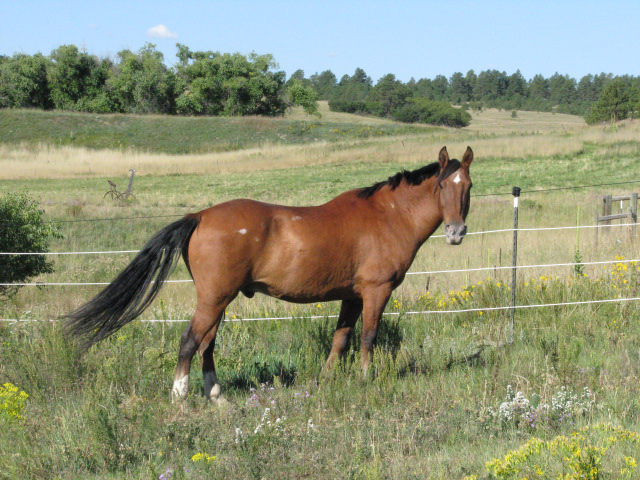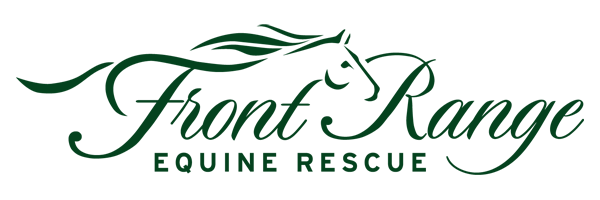The heart and soul of Front Range Equine Rescue’s work.

Direct rescue involves saving horses from abusive situations, providing rehabilitation, training evaluation and adoption to qualified homes. Front Range Equine Rescue provides a permanent home to horses which are unlikely to adopt, but are still in overall good health. Both locations, Colorado and Florida, have horses living out their lives with the rescue. Direct rescue also involves providing humane euthanasia for horses debilitated or suffering from various conditions such as disease or severe/traumatic injuries where the quality of life is diminished and there are no medical options to provide a humane existence.
Horses are obtained from auctions, kill lots, animal control impound, abandonment cases, and owner surrender.
Incoming horses with unknown backgrounds are quarantined from the general herd and each other when entering the rescue at different times. Front Range focuses on saving abused and neglected horses with emphasis on those bound for slaughter. Front Range Equine Rescue is not authorized to investigate/seize abused horses, but has a history of working with animal control when needed. To report suspected abuse/neglect, contact your local humane society or animal control.
All horses in the rescue program receive routine veterinary care as well as any emergency care needed. This care includes Coggins test, vaccinations, de-worming, dental care, and regular farrier care. As needed, rescue horses are given supplementation, such as nutritional (i.e., vitamins/minerals, probiotics) or for conditions such as arthritis. Horses are also provided complementary therapies including, but not limited to, chiropractic, acupuncture, homeopathics, herbal remedies, etc. Once rehabilitated, all horses undergo training assessment prior to being placed up for adoption to qualified homes.
Indirect rescue plays a critical role in Front Range’s mission to end the abuse and neglect of horses. Direct rescue is limited by available shelter, funding and people needed to properly care for horses and facilities. Indirect rescue is an important way to help more at risk horses.
Indirect rescue means helping at-risk horses without having to take them into the rescue program. It has included special programs like Front Range’s former “Stop the Backyard Breeder” and “Trails End” programs. Another example is providing re-homing tips for horse owners on how to safely place their horses into a new home if unable to continue caring for their horse(s). Front Range Equine Rescue has also provided assistance during emergencies such as wildfires and hurricanes. That aid has included evacuation of horses (and other animals), managing or donating supplies to evacuation locations, and giving owners assistance in how to locate safe options for horses they cannot take home. FRER has also helped horse owners during times of economic crisis with short-term hay/feed or basic veterinary care assistance. Front Range’s solutions to horse slaughter are another form of indirect rescue as are its legal campaigns to protect wild horses and responsibly end horse slaughter.
Rescue horses are currently kept in Colorado and Florida. Horses available for adoption are only located in Colorado and can be viewed here.
Click here for ways you can help support the rescue program.
For more information, please contact us.
